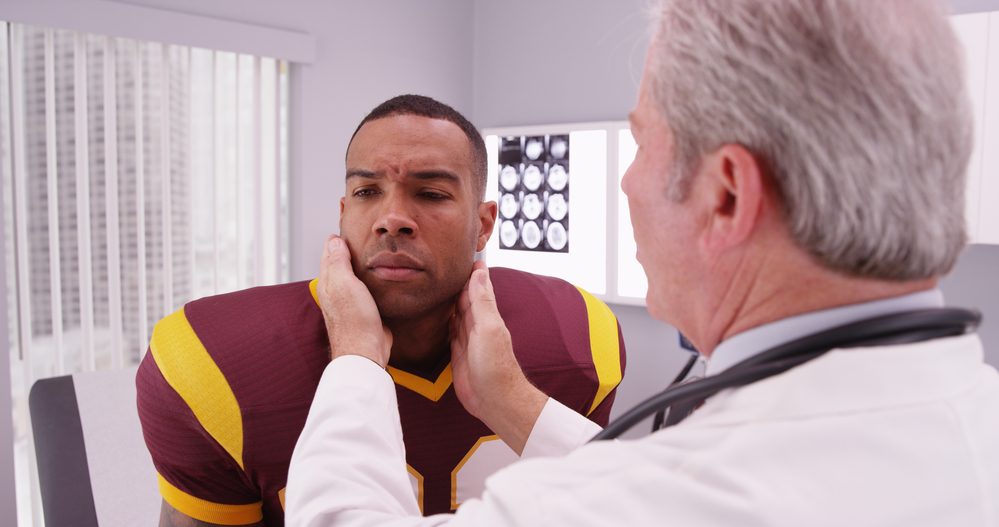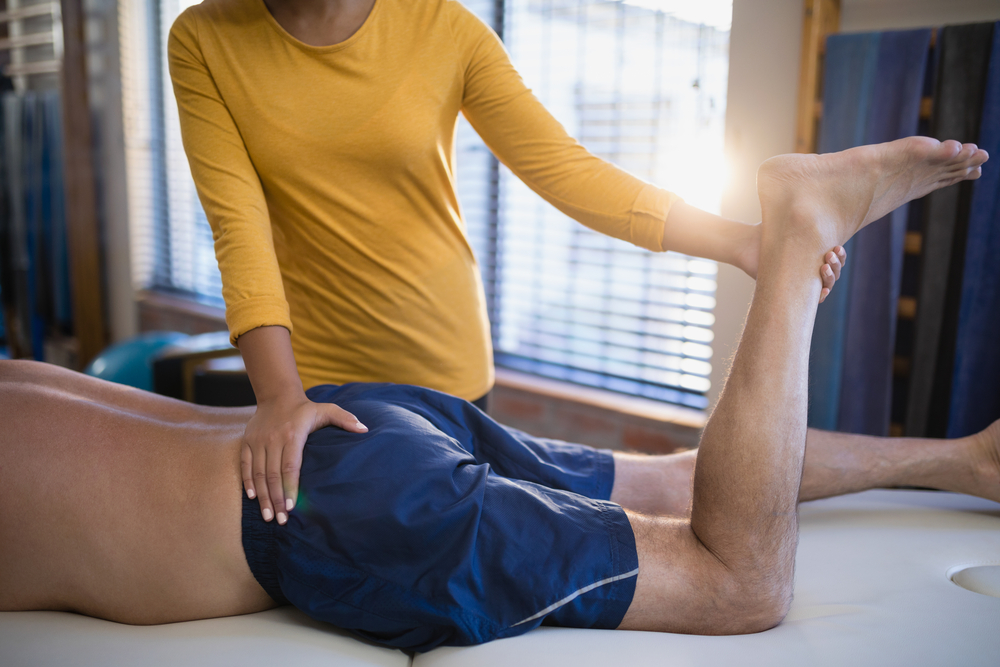
Thirty-six states in America have legalized medical cannabis. But for professional athletes in major leagues with sports injuries, CBD (0.3% THC) is not even an option. For pain management, stress, and other health needs. Once you sign that professional contract, you can drink. You can smoke (tobacco).
And you can rely on prescription opioids. But you cannot have marijuana in your system. Or your career could be over faster than you can say, Jack Robinson. As long as cannabis remains a Schedule I drug and prohibited by federal law. Pro-athletes do not even have the choice of a more natural alternative health option.
In an article on Herb. co, the legal contradiction was perfectly summarized:
“More than a third of the 123 major sports teams in the NFL, NBA, MLB, and NHL currently play in U.S. states or Canada, where, in at least some places, cannabis is legal for recreational adult use. Nearly half of these teams play in states or provinces where medical cannabis is legal.”
The ban on cannabis for sports injuries is about more than breaking federal law. Particularly if it still applies to pro-athletes playing in Canada. The modern gladiators of professional sports can rely on prescription drugs, massage, and hot and cold therapies. And in some pro leagues, CBD creams and ointments are not even an option.
If you were to guess how many sports injuries there were (worldwide), would you guess in the millions? According to data from the U.S. Department of Health and Human Services (2020), the figure is 8.6 million per year. And about one-third of those injuries occur on an athletic field or inside a sports facility.
The movie “Concussion” starring Will Smith (2015), put a spotlight on professional football. We pay to see games. We live stream them on TV, and we buy the merchandise for our favorite teams. But what we do not pause to consider is how much pain our favorite players are expected to cope with—reinjuring past sports injuries, to keep playing, per the terms of their contract.
It is no coincidence that retired players have become advocates for CBD or medical cannabis. Some of them have even started their own brands, specifically formulated for sports injuries. Most recently, retired Patriots star Rob Gronkowski stated that he tried CBD after he retired. And was surprised at how effective it was for pain relief.
Because cannabis is federally prohibited, there are no official standards of potency for retail CBD products. And many companies are selling CBD supplements (like tincture drops) or creams online. The FDA has even fined some brands for making unsubstantiated claims about the ‘medical benefits’ of CBD. Because the FDA claims, there is not enough human trial evidence to show that CBD works for chronic pain.

Whether you are an amateur or professional athlete, strains and sprains happen. And generally, those injuries repair themselves after a few weeks. But with repetitive strain injuries, muscular-skeletal damage can occur, which cannot be fixed. And then the athletes sustain a lifelong disability.
A muscle strain occurs when the tissue’s elastic structure is pulled too far out of the normal range. Muscles are designed to stretch and move. But athletes put their muscles through grueling requirements. Sometimes daily. Like an old elastic band that has been stretched too many times, muscles can lose the ability to contract. Or return to their original position in the body.
While strains and sprains are most common, some of the other most common sports injuries include:
For professional athletes who are injured, they try to repair the damage with physiotherapy. Unfortunately, many recoveries are just temporary. And the athlete may be injured in the same place repeatedly for the duration of their career.
If you have ever tried to hit the gym when you have sore muscles, you can empathize with pro-athletes. Their contracts depend on participation and optimal performance. Pain has to be managed while repetitive injuries occur. And that creates a window of opportunity for opioid addiction.
Imagine that you have injured a part of your body you use all the time. One of the reasons why shoulder and back injuries are so painful is because it is impossible to isolate movement. Everything you do will involve (to some degree) your shoulders, hips, arms, and back, which all contribute to aggravated back pain.
What we do know about cannabinoids is that they can have a powerful anti-inflammatory effect. And most chronic pain symptoms are caused by inflammation. Medical cannabis is psychoactive and can provide both inflammation-fighting and analgesic (pain relief) effects.
What do you do if you are a professional athlete and the option of medical cannabis is not available? Prescription medications like NSAIDs and opioids have many side-effects. They are not meant for long-term use. But when an athlete has severe chronic pain, prescription medications can become part of the daily routine. Not for weeks following an injury, but potentially for the duration of their professional career.
There is a bigger problem with the long-term use of opioids, aside from addiction and overdose potential. Many studies have shown that over time, opioid medications amplify pain. While they are formulated to shut down the pain receptors, the body compensates. Kind of like the way your Grandfather continues to turn up the volume as his hearing loss progresses.
For athletes on opioid medications, the result can be increased pain. This is why many groups and former players advocate for legalized medical cannabis—a potentially safer and more effective option. As marijuana is not performance-enhancing like other controlled substances, it could be effective pain management for athletes. And that means better performance and a higher quality of life without chronic pain.
Legislation in the MORE Act, a set of bipartisan bills to legalize cannabis, will head back to the Senate in 2021. The legislation was not able to move through the Senate before the holidays in 2020 and was delayed.
Now that there has been a political change at the Presidential, House of Representatives, and Senate levels, will federal legalization happen? Before the Democratic majority in the Senate, it was unlikely. But now, we could see some significant changes this year to federally legalize the personal and medical use of cannabis.
In February of 2019, the American Bar Association wrote an interesting article about pro-athletes and the prohibition of cannabis. It goes as far as to suggest that denying athletes who have qualifying health conditions from medical cannabis may be a constitutional violation. The article also asserts that doctor-supervised cannabis therapies should be a legal option for sports medicine.
If cannabis is safer than the long-term use of opioids or NSAIDs, are professional teams liable for health damages? If a player has few options for symptom management and develops a secondary condition, could the team face a civil liability? What if the pro-athlete develops a permanent disability as a result of pain medications?
We know that the tens of millions of dollars that professional athletes get paid cannot compensate for life with unresolved pain. And as federal lawmakers address the prohibition of cannabis, major league teams should prepare to change their policies. And stick to drug testing for performance-enhancing drugs alone. Not CBD or cannabis used for medical treatments.
Featured Image: mark @ rocketclips.com | Deposit Photos
No Information on MarijuanaDoctors.Com should be used to diagnose, treat, prevent or cure any disease or condition. You can view our Full Disclaimer here.